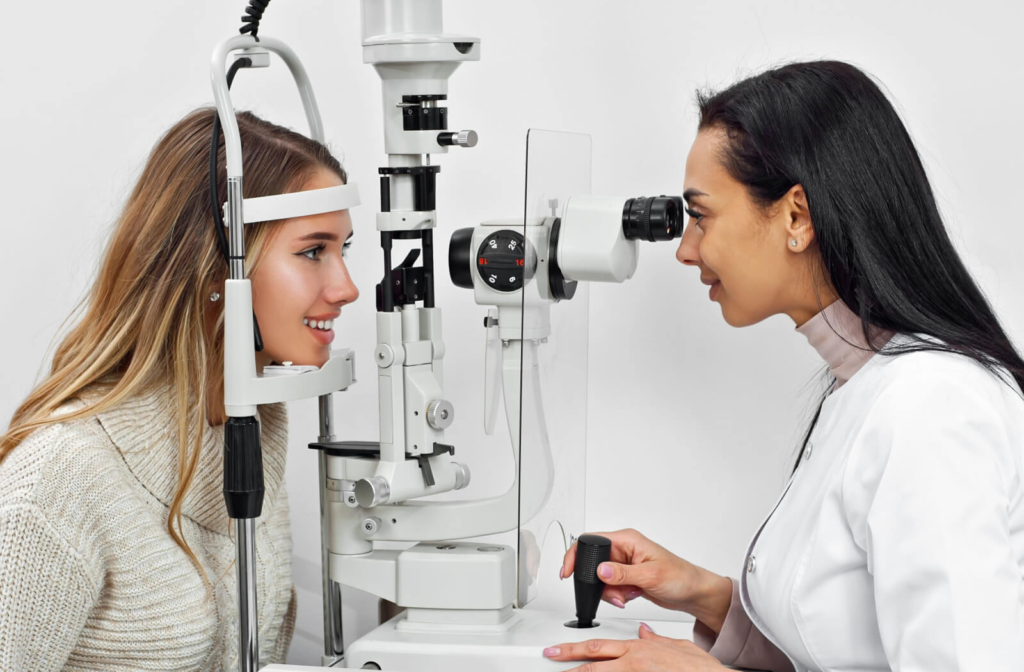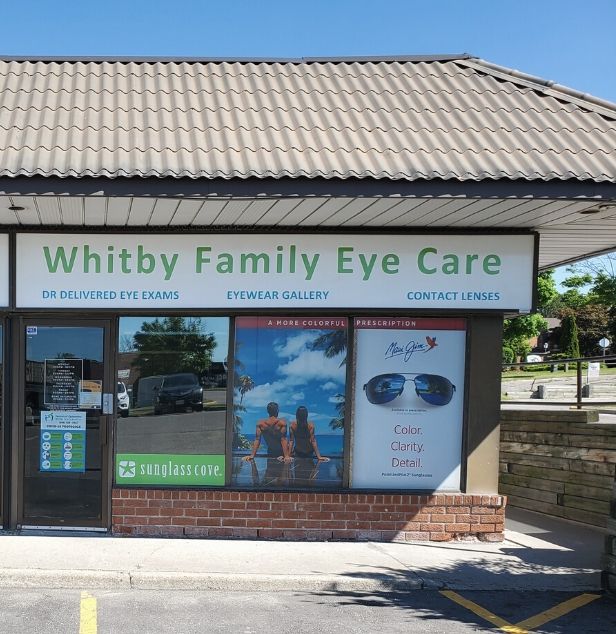Yes, you can get a sunburn on your eyes. Your eyes are very susceptible to sun damage, and when the surface of your eyes becomes damaged by ultraviolet (UV) rays, you can develop a condition called photokeratitis, The surface of your eyes, the cornea, has the highest density of pain receptors in your entire body, so photokeratitis can be very uncomfortable.
Sunglasses are a must for protecting your vision from UV rays—as long as they have full UV protection. It’s essential to protect your eye health, and that’s where your optometrist can help with comprehensive care, recommendations for eyewear, and advice for the right sunglasses to protect your eyes.
How Does Photokeratitis Occur?
Photokeratitis can occur in several situations, not just by direct exposure to UV rays. Reflected sunlight from snow, ice, sand, water, buildings, cars, and concrete can also contribute to an eye sunburn. Furthermore, failure to wear appropriate eye protection while welding and during tanning bed use can also result in photokeratitis.
Photokeratitis is a painful but temporary eye condition caused by exposure to ultraviolet (UV) rays, most commonly from the sun. It’s essential to recognize the symptoms and know how to protect yourself.
Symptoms of Photokeratitis
If you experience any of the following symptoms, it’s critical to seek care from your eye doctor:
- Redness: The first sign of photokeratitis is often redness in the eyes. Redness can be a sign of inflammation and damage caused by UV rays.
- Pain: Photokeratitis can cause a sharp, burning pain in the eyes that can persist for hours after exposure to UV rays.
- Sensitivity to light: Another common symptom of photokeratitis is sensitivity to light. You may find that even dim light can cause discomfort and pain.
- Swelling: Along with redness, you may experience swelling in the eyelids as a result of inflammation within the eye.
- Excessive tearing: Your eyes may produce excessive tears without apparent cause. This is another symptom that can be related to inflammation within the eye.
Many of these symptoms can be signs of conditions other than photokeratitis. Should you experience any changes to your eyes or vision, make sure to speak with your optometrist.
How to Protect Your Eyes Against UV Rays
UV protection is essential for keeping your eyes healthy. Taking these precautions can help reduce your risk of experiencing photokeratitis.
Wear Sunglasses With 100% UV Protection
Not all sunglasses are created equal. Whether you’re buying sunglasses for fashion or function, always make sure they have 100% UV protection. Sunglasses with 100% UV protection should be able to block both UVA and UVB rays. Your optometrist can check your sunglasses to make sure they do in fact have 100% protection.
Wear Polarized Sunglasses
Polarized sunglasses will protect your eyes from the UV rays reflected from below, like those that bounce off the water and into your eyes when you are boating, or the UV rays that bounce off the snow during outdoor winter activities.
Wear a Hat With a Brim to Provide Extra Shade for Your Eyes
A wide-brimmed hat can provide extra shade for your eyes to reduce the UV rays entering them from above. This can be especially useful when you’re spending extended periods outside.
Stay Indoors When the Sun Is Strongest
The sun’s rays are strongest between 10 AM and 4 PM. If you can, avoid going outside during these times, limit your time outside, and take breaks in the shade.
Wear Wraparound Sunglasses to Protect Your Eyelids and the Skin Around Your Eyelids
Wraparound sunglasses can provide additional protection for the skin around your eyes and your eyelids. If you have ever applied sunscreen near or around your eyes you know this can be difficult to tolerate. The extra protection wraparound sunglasses provide can help reduce your risk of skin cancer to these areas.

Keep Your Eyes Clear & Healthy
At Whitby Family Eye Care, we believe prevention is essential for your eye and vision health. While it’s easy to forget your eyes can sunburn, it’s crucial to remember to protect them from harmful UV rays.
Our caring professionals use advanced technology to provide comprehensive eye exams and customized therapeutic solutions that can help you maintain your ocular health—as well as sunglasses to help protect your eyes. Our team is dedicated to providing the personalized care and treatment you need to keep your eyes healthy.
Remember to protect your eyes, wear 100% UV protection sunglasses, and request an appointment with us if you experience any symptoms related to photokeratitis. Stay safe, protect your eyes, and enjoy the sun!







